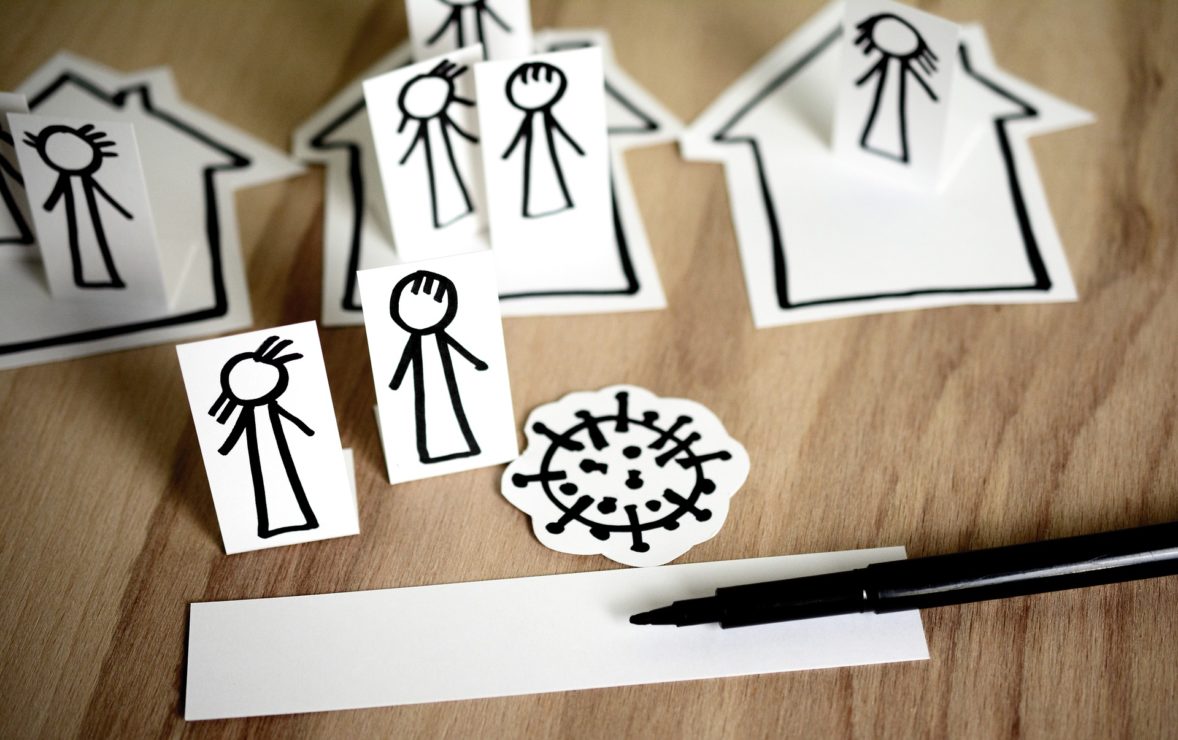Headlines of increasing case counts are reminders that this is our reality, and it’s time to adjust accordingly

If looking back on “normal life” feels surreal, you’re not alone. The social and economic impacts of the past three weeks have been tremendous. Life has ground to a halt as the world grapples with the new reality — one that’s been unquestionably shaped by COVID-19.
If you’re reading this on the day this issue was published, it has only been 20 days since UVic announced it would transition from face-to-face to online delivery of courses. Though some measures to limit the spread of the virus were beginning to be introduced in Canada, gatherings of under 250 people were still allowed at the time. In other places like Singapore and Taiwan, even more stringent measures had been in places for months. At the time of writing, there have been over 845 000 confirmed cases and over 41 000 reported COVID-19 deaths. This number will sadly have gone up by the time you have finished reading this sentence, and has risen even more so in the time since this sentence was written.
Any semblance of our former lives has been replaced by zoom meetings, a 24/7 stream of pandemic news and memes, and an ever-growing sense of unmoored restlessness as we enter deeper into cabin fever as the world shuts down — with only a vague timeline as to when restrictions will be lifted.
For now, this is the new normal.
It’s caught a surprising amount of people in the west unaware, even though COVID-19 has been raging across the world since December. Some, like those in Victoria who held gatherings that led to nearly a dozen noise complaints to the Victoria Police last weekend are still in denial. Until we accept our pandemic-dependent present, we can’t even begin to imagine life without COVID-19.
If we want to use physical distancing measures to end the pandemic, we need to practice them effectively now. If we want our world to come out with some semblance of how things were, we need to use this crisis as an opportunity to reshape the world, and not let autocrats decide our destinies.
Part of that means changing our priorities. Prioritizing economic health over human health costs lives. The economy isn’t some nebulous number going up and down some chart — we are the economy. It lives and dies on our actions: the services we use, the goods we buy, and the money we obtain with our labour. We control the economy, it does not control us.
Despite arguments to the contrary from powerful people — like the President of the United States or the Times Colonist Editorial Board — now, more than ever, there is a moral imperative to take measures that protect human lives rather than corporate profits.
But maybe, just maybe, we need a new economic normal too that takes the impact this pandemic has had on people into the equation.
Right now, it’s hard to feel bad for the people that have to cancel their cruise ships and resort vacations. Most students can hardly afford rent this month. The people that can afford to go on cruises should be taxed so that the rest of us might be able to afford the rent for a shared basement suite in Gordon Head amid the widespread layoffs and closures.
Our economy has essentially stalled, with most businesses unable to operate and the stock market rapidly declining — we’re about to hit rock bottom. When this pandemic ends, we will almost certainly be left with a recession worse than 2008.
So what can be done to offset this? We could try something like a Green New Deal to diversify the economy. Or maybe, the government could implement living wages or a universal basic income so people can afford to live when there isn’t a pandemic.
Although we clearly have our own ideas for what a better future could look like post-COVID-19, the next few days, weeks, and months are very uncertain. Soon, the shops will start to re-open, and public life will return. But we won’t go back to normal — we will be in a new, post-COVID-19 world. What that looks like depends on what we do right now, how we adapt, and how much we value the people in our community.
Next time you go to the store and see empty shelves and cashiers behind plexiglass screens, remember that they aren’t being paid a living wage. People are essential to our economy and our health, and we need to start valuing each other a hell of a lot more — during and after this pandemic.







